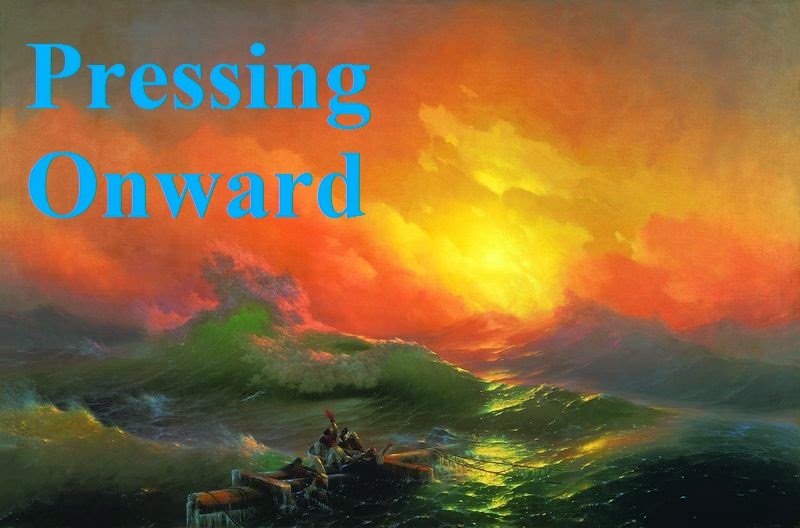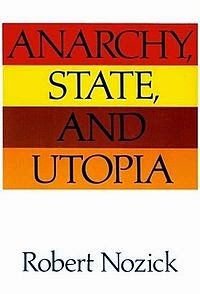Wealth inequality has existed to some degree in every free
society known to man. In the United States of America in particular, the
current disparity between the richest and the poorest is astronomical. Many
people today have argued that it is unethical for some individuals to
accumulate so much wealth while others have barely enough to keep themselves
alive. It is the responsibility of the state, according to these welfare
economists, to maximize net happiness by distributing wealth from the richest
individuals to the poorest. Some have argued that these redistributions should
be in the form of taxation, while others of more revolutionary persuasion
advocate the appropriation of others’ holdings by force. Regardless of how it
is attempted, wealth redistribution of any kind is patently immoral, according
to the philosophy of Robert Nozick (1938-2002). Nozick is considered by many,
including myself, to be one of the most influential libertarian thinkers. His
1974 book, Anarchy, State, and Utopia
is a phenomenal text that sets the groundwork for much of modern libertarian philosophy[1].
In Chapter Seven of Anarchy, State, and Utopia, entitled Distributive Justice, Nozick makes what I believe to be the soundest
argument against wealth redistribution.
According to Nozick, someone’s entitlement to a holding is
justified only if it was voluntarily transferred to them. Acquiring something
by trade, by purchase, by gift, or on loan is a justifiable claim to a
possession, but if something is acquired by extortion or thievery, then that
holding is not just and Nozick would argue that in a free society, such an
injustice would need to be rectified. Nozick’s Entitlement Theory is historical.
If the sequence of events leading up to someone acquiring an object is
justifiable, then so is the acquisition. If, for example, a burglar stole a
television and then sold it to a friend, and that friend gave me the television
as a gift, I would still not be entitled to the television since it was first
acquired by unjust means. Therefore, as long as a given distribution of wealth
came about by just means, then that distribution, according to Nozick is also
just, regardless of how unequal the distribution may be. Those who complain
about wealth inequality must understand that the current distribution of wealth
has come about through voluntary exchange and the laws of supply and demand
acting throughout history. Even though some people are extraordinarily wealthy
and some live in destitute poverty, does not entail that anybody (especially
the government) can claim possession of another’s holding for the purpose of
redistribution.
A person can only be entitled to a holding if he acquired it by
just means. To illustrate this point, Robert Nozick presents what has come to
be known as the Wilt Chamberlain Argument[2].
Nozick asks us to imagine a society with an egalitarian distribution of wealth,
which he calls D1. Now imagine that
in this society, Wilt Chamberlain puts on a basketball game and charges
spectators twenty-five cents each to watch him play. Assuming that one million
people decide to watch him play basketball, then Chamberlain would make a
quarter of a million dollars from this transaction and all the spectators would
be out one quarter. Nozick calls this new distribution of wealth D2. Even though the new distribution in
D2 is extremely unequal compared to D1, D2 is still morally justifiable if all
the spectators voluntarily chose to pay Wilt Chamberlain the quarter. In D2,
Chamberlain would be far wealthier than anyone else, but he would still be
entitled to every quarter given to him. This example shows how a
non-egalitarian distribution is still justifiable even if a great disparity
exists between the poorest and the richest. Inequality is not immoral as long
as the transactions that brought about such an inequality were themselves moral
and not coerced.
100-point games played and 20, 000 women laid
Nozick argues that a society with an egalitarian distribution
of wealth is not only immoral, but impossible, since such a society would have
to arrest all transactions between consenting individuals. Nozick writes,
“The general point illustrated by the Wilt Chamberlain example is that no end-sate principle or distributional patterned principle of justice can be continuously realized without continuous interference with people’s lives... To maintain a pattern, one must either continually interfere to stop people from transferring resources as they wish to, or continually interfere to take from persons resources that others for some reason chose to transfer to them.”[3]
Even if a society could
somehow redistribute all wealth in accordance with an egalitarian principle, the
distribution would not remain equal for very long. As the Chamberlain argument
demonstrates, people are always going to voluntarily engage in transactions
with others. These transactions are naturally going to make some people
extraordinarily wealthy, and other people, by their own undoing, extremely
poor. The problem with welfare economics is that it assumes there to be some
ideal state of wealth distribution that would make everyone better off. It is
an end-state philosophy. Reality is
not composed of end-state distributions however, but of continuous transactions
in which resources exchange hands between those who are entitled to them. To
propose that there is some ideal distribution of wealth is therefore absurd
because it completely discounts how the current state of wealth inequality came
about. In order to impose a given distribution of wealth, the state would have
to use force against anyone who did not act in accordance with the ideal
distribution, which would not only be in violation of individual rights, but
would also entail an enormous waste of time and effort.
As we can see, there is nothing inherently wrong with wealth
inequality, regardless of what socialists and welfare advocates would have you
believe. In a free society, the most talented and business-savvy individuals
are bound to accumulate wealth, whereas those with no particular skills will
not. As long as those wealthy people have earned their money through voluntary
transactions, then they are entitled to every penny of it. It would be
unethical, according to Nozick, for any Robin Hood-like character to
redistribute the holdings of others on the basis that a current distribution is
unequal. A free society must respect the life, liberty, and property of all.




You're basing your argument on the premise that there has been "rectification of injustice" and that holdings, from historical to modern, have been justly acquired. I'm sure that the majority of the world will tell you, in 2018 at least, that slavery is not a form of "just acquisition," nor "just transfer," and therein your argument falls.
ReplyDeleteWow! this is Amazing! I got free 100$ Gift cards! Click here to get your free gift cards!
ReplyDeleteThis is very interesting, You're a very skilled blogger. I've joined your rss feed and look forward to seeking more of your great post. Also, I've shared your website in my social networks!
ReplyDeleteThank you for sharing your info. I truly appreciate your efforts and I am waiting for your further write ups thanks once again.
ReplyDelete